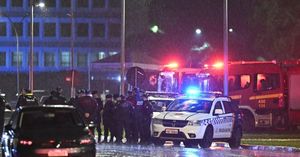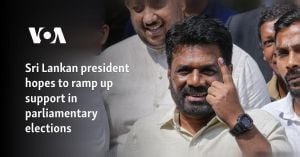Calls for major electoral reforms are resounding through Nepal, especially highlighted during the recent Kantipur Conclave 2024. This gathering brought together experts and political leaders who underscored the pressing need for changes to the electoral framework to bolster democracy within the country.
During the session titled 'Electoral Reform: Policy or Practice?' Chief Election Commissioner Dinesh Thapaliya articulated the urgency of overhauling Nepal's electoral system. He stressed the importance of structural and policy reforms to empower the National Election Commission, noting various challenges the commission currently faces. “Unlike other nations, our election commission often learns of election dates only after the government announces them. This hampers our ability to prepare and manage elections effectively,” Thapaliya pointed out.
Thapaliya advocated for the election commission's autonomy, emphasizing the need for it to operate independently, managing its own timelines without reliance on government decrees. He expressed concern over systemic flaws within the current governance and operational mechanics of the electoral process.
Former Chief Election Commissioner of India, SY Quraishi, also took the stage, sharing insights from India's experience with electoral systems. Quraishi asserted, “Meaningful electoral reform requires strong political will and party consensus—both often lacking in South Asia.” He highlighted historical issues plaguing the region, such as criminal influence and lack of inclusiveness, echoing Thapaliya's sentiments for reform.
Quraishi drew attention to Nepal's progressive constitutional framework, particularly concerning women’s representation. While India has just introduced legislation for 33 percent female representation set to kick in by 2029, Nepal has already achieved significant progress since 2015. He noted, "Nepal’s local governance structure is empowering women substantially, which is commendable for governance reform within South Asia.”
But issues of representation don't just center on gender. UML General Secretary Shankar Pokhrel advocated for significant changes to the electoral system, attributing frequent governmental instability to the mixed electoral methods currently employed. He proposed increasing the electoral threshold from three percent to five percent for national and provincial seats, which would potentially stabilize governance by limiting the representation of smaller parties.
Pokhrel emphasized, “The existing mixed electoral system dilutes both power and stability, leading to frequent changes within government. A higher threshold will allow for larger parties to consolidate their strength, thereby fostering more stable governance.” Currently, political parties must meet minimum vote requirements to gain proportional representation, which Pokhrel argues creates fragmentation.
With the existing electoral setup enabling many small parties to gain power, the resulting instability complicates the formation of majority government coalitions. Many leaders at the conclave agreed with Pokhrel's position, reflecting on the broader need for reform.
Meanwhile, Janamat Party Chairperson CK Raut reflected on the greater diversity within the nation due to its multitude of languages and communities. Raut pointed out, “Proportional representation is not just important; it is decisive for inclusivity.” Yet, he added his worries about the potential drive toward establishing a two-party system as some advocate for political convenience. “This could spell disaster for our inclusive democracy,” he cautioned.
Chief ministers from various provinces also voiced their frustrations related to federal governance at the conclave. They lamented the obstacles posed by central authority’s reluctance to devolve significant power, leading to inefficiency within provincial operations. Gandaki Chief Minister Surendra Raj Pandey highlighted these tensions, criticizing the federal structure’s limitations on provincial jurisdictions.
Sarcastically referring to the state of federalism, Chief Minister Pandey remarked, “We are stuck at 2G when we should be enjoying 5G connectivity!”
Through these discussions at the Kantipur Conclave, it became clear: Nepal stands at a crossroads. Experts and political leaders alike stress the necessity for substantial electoral reforms, yet the path forward remains fraught with challenges including the political will to enact change.
The urgent calls for reform echo through the public consciousness, urging not just policy changes but also shifts within the arena of political power dynamics. Unless these reforms are implemented, the integrity of Nepal’s democratic processes may be compromised, putting the future stability of its political environment at risk.
At this time of political reflection and potential upheaval, there’s hope. The discussions at the conclave may very well lay the foundation for reforms aimed at diversifying representation, enhancing governance, and reinstilling faith among the public. But significant work lies ahead to navigate the complex political currents and truly reinforce democracy within Nepal.



